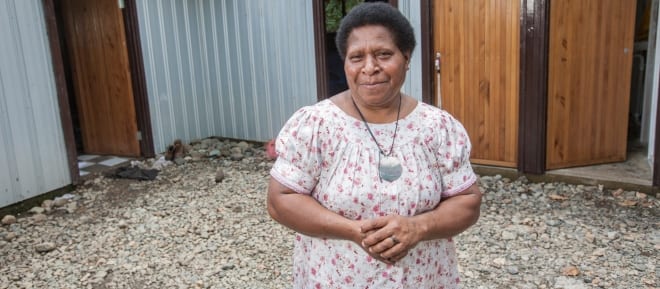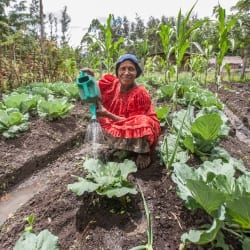If you’re a woman in PNG, your chance of being assaulted is as bad as if you lived in a war zone where rape is used as a weapon. Two-thirds of women have experienced violence. Oxfam supporters and local partner Voice for Change are giving women in Papua New Guinea a chance to escape violence and abuse and build a new, safer future for themselves and their children.

Oxfam and our local partner Voice for Change are giving women in Papua New Guinea a chance to escape violence and abuse and build a new, safer future for themselves and their children.
Living with violence
If you’re a woman in PNG, your chance of being assaulted is as bad as if you lived in a war zone where rape is used as a weapon. Across the country, 68 per cent of women have experienced physical or sexual violence and one third have been raped. In some Highland regions, as many as 98 per cent of women report being sexually abused.
To make matters worse, many rural communities do not have the basic services like health care that we in New Zealand often take for granted. And an ineffectual, under-resourced police service and legal system mean many women don’t report abuse and most perpetrators go unpunished.
The low status of women in PNG is also a factor. Women often have no source of income themselves. That makes them very vulnerable. With no way to support themselves or their children, they are often forced to go back to the very family members who have abused them.
Protecting women and girls
Despite the many challenges, things can improve – and they are. Oxfam works with courageous women and organisations to stop violence against women and girls and help them rebuild their lives and their independence.
Our partner Voice for Change provides protection and support for women who’ve endured abuse. They help women get the urgent medical and legal support they need and in the longer term, they help women develop the knowledge and skills necessary to earn money for themselves. They also challenge the low status of women, advocate for an end to violence against women and girls and work with communities to build a safer future free from violence.
Getting out and moving on
 Lilly Be’Soer is the director of Voice for Change. She says, “Most of these women have faced violence in their lifetime, but we are supporting them with income generating projects. And then they are able to get out.”
Lilly Be’Soer is the director of Voice for Change. She says, “Most of these women have faced violence in their lifetime, but we are supporting them with income generating projects. And then they are able to get out.”
Voice for Change runs a demonstration and training garden in Jiwaka Province, providing women with valuable skills to grow organic food to feed their families and produce a surplus to sell at the local market for a much-needed source of income.
The ripple effects are powerful. As women recover from attacks, they build resilience and independence. In Lilly’s words, “The women’s economic empowerment programme and the violence against women are connected. Women can really come out of a bad relationship if they have some money, if you give them the information that they need. You provide the skills training and the information for them.
“If they get to the market and they have some money, it empowers them. Then they have choices. They can make decisions for themselves. And then they can move on.”
On film: stories of survival
This video tells the stories of some of the survivors and how Oxfam is working to end this suffering. It’s not easy to watch but it’s much, much harder to live through.
You can help build a safer future
With the help of generous supporters like you, Oxfam is working to end the suffering of women and girls throughout the Pacific and all across the world. Your gift could help pay for straight-forward measures like safe houses, where women and their children can escape violence.
You can help give women in places like Papua New Guinea the chance to put violence behind them and begin to live safer, happier lives.



